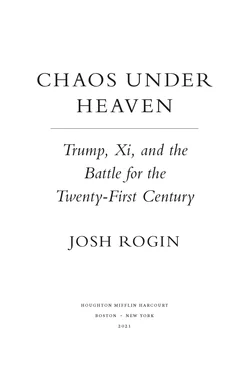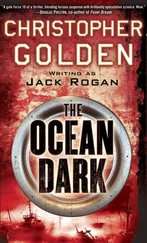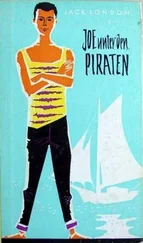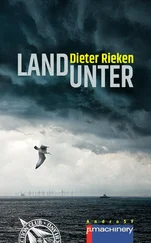If one could dismiss Xi’s words, it was harder to ignore his actions and his string of broken promises during Obama’s tenure. Xi and Obama signed an agreement in 2015 that China would end cyber theft of intellectual property; that same year, Xi promised Obama in the Rose Garden that China did “not intend to” militarize its artificial islands in the South China Sea. But no sooner had the Chinese president made these promises than his government set about breaking them. The government-sponsored cyber theft lessened for a few months but then returned to its previous levels. In May 2015, Beijing unveiled its “Made in China 2025” plan, a commitment to revolutionize the Chinese manufacturing sector over ten years; this plan, which sought dominance of several high-technology industries of the future, including information technology, robotics, aerospace, and clean energy, was a direct challenge to the technological advantage that Western economies were depending on to fuel the next generation of economic growth. China steadily built out surfaces on reclaimed reefs and other features in disputed areas of the South China Sea, adding infrastructure, then radar, then all-out military defenses. Meanwhile, China was rapidly expanding its Belt and Road Initiative, debt-trapping developing countries on several continents. Xi’s government was crushing domestic dissent, pressuring Taiwan, slowly suffocating Hong Kong’s freedoms, and brutally repressing Tibetans, Uyghurs, and any other minority that resisted the official program of political loyalty and total state authority.
Over Obama’s eight years in office, his China team battled internally over whether to continue an engagement-focused strategy based on encouraging the CCP to move toward economic and political opening, or shift to a strategy of competition based on a more realistic assessment of China under Xi. The internal dynamics were messy. The State Department under Hillary Clinton took a relatively centrist position on China while she was secretary. Her lead Asia official, Kurt Campbell, devised the “Pivot to Asia” policy, but the National Security Council, led by National Security Adviser Tom Donilon, forced him to change the name to “Rebalance to Asia” (although Campbell got the last word in his book, which was titled The Pivot ). Meanwhile, her deputy, Jim Steinberg, came up with his own framework for US-China relations that he called “Strategic Reassurance.” The problem was, Steinberg never bothered to include any other part of the government in coming up with his framework, so it never went anywhere.
Confronting China simply was not a priority for top-tier second-term Obama administration foreign policy officials such as National Security Adviser Susan Rice and Secretary of State John Kerry, who valued smooth relations as necessary for securing Obama’s legacy. They didn’t see China’s aggression as an urgent problem that needed solving, and they needed Beijing for the things they cared about more, such as climate change and the Iran nuclear deal. Officials at the Pentagon, at the Justice Department, and in parts of the intelligence community, on the other hand, did become increasingly concerned about China’s behavior as the Obama administration dragged on. “You had this whole team across the Obama administration who felt our approach to China is not working,” one senior Obama administration official told me. “We are being shaped to our disadvantage. We are not doing the shaping.”
In order for the Obama team to claim a successful China policy, it needed to portray the relationship as copacetic—a need that manifested itself as willful blindness to the changing reality. Toward the end of its tenure, indeed, the Obama White House went to great lengths to avoid disrupting relations with China. After Defense Secretary Ash Carter and Chief of Naval Operations Jim Richardson referred in speeches to “great power competition,” Rice’s National Security Council went so far as to directly instruct the Pentagon officials not to use the term “competition” when referring to the US-China relations and find a less inflammatory term.
Their deference was not rewarded with respect. On Obama’s final presidential trip to China in September 2016 for the G20 summit in Hangzhou, the Chinese officials famously wouldn’t allow the US advance team to bring over the stairs Obama uses to depart Air Force One. Obama embarrassingly popped out of a smaller exit under the wing. Chinese officials then manhandled the US press and prevented Rice from crossing their security line.
“At the time, many viewed the treatment as a metaphor for a rising power flexing its muscles with a young president from a superpower in decline,” the New York Times reported.
A senior Obama administration official put it more bluntly: “When you are not respected enough for them to bring the stairs in, clearly something is not working.”
The Backchannel
The Chinese government had taken for granted that Clinton would win, and that Beijing could continue flexing its muscles with little resistance from Washington. As a result, China had been utterly unprepared for Trump’s surprise electoral victory. On November 9, it was forced to confront the unpleasant reality that it had no plan for dealing with an incoming administration whose China team Beijing didn’t know, didn’t understand—and certainly didn’t want.
For Beijing, an American foreign policy run by hawks like Bannon and Navarro was the worst possible scenario. Chinese leaders had spent four decades grooming a generation of China hands to manage the relationship, investing in them with time and money and depending on them to steer the ship calmly. Bannon and Navarro had no skin in that game, and nothing to lose by burning those bridges.
In a search for answers after the election, and hoping to find another, less hawkish liaison with the new administration, Ambassador Cui reached out to Jared Kushner. Cui had met the president’s son-in-law during the campaign, and had reason to suspect that Kushner would be easier to deal with than Donald Trump’s other close advisers. After all, the ambassador and Kushner had been introduced, auspiciously, by a mutual acquaintance and longtime friend of China: former US secretary of state Henry Kissinger.
Kushner had reached out to Kissinger for help during the campaign. Privately, he also sought Kissinger’s approval, which for Kushner represented the cachet that he would need in order to assume a major policymaking role for which he simply wasn’t qualified. Kissinger, for his part, was pragmatic; he knew that Kushner was the quickest way to Trump’s ear, and the best way to continue advancing the cause of improving US-China relations, to which he had devoted his life and on which he had staked his legacy. But Kissinger didn’t pretend to be close to Kushner. When Kushner asked Kissinger to write his biography for Time magazine’s 100 Most Influential People list in April 2017, Kissinger was decidedly lukewarm in his endorsement of the young man, “whom I first met about 18 months ago, when he introduced himself after a foreign policy lecture I had given. We have sporadically exchanged views since,” Kissinger wrote. “As part of the Trump family, Jared is familiar with the intangibles of the President. As a graduate of Harvard and NYU, he has a broad education; as a businessman, a knowledge of administration. All this should help him make a success of his daunting role flying close to the sun.”
In any event, the budding friendship between the real estate heir and the foreign-policy sage began to pay dividends immediately—at least, for Kissinger and his Chinese counterparts. Kissinger had gone to see Xi on December 2, the day of the Taiwan call, because he believed he spoke for the president; through Kushner, he had gotten Trump’s blessing to make an overture to Beijing on behalf of the incoming administration. After all, Trump may have thought of China as an “enemy,” but he still wanted a deal. It was Kissinger, too, who subsequently set up the meetings in Kushner’s office with Yang after the Taiwan call, in an ultimately failed bid to undo the damage. But although the meetings were a bust, Kissinger had established the first functioning bilateral channel between Beijing and the incoming US administration—and that channel went straight through Trump’s son-in-law.
Читать дальше











